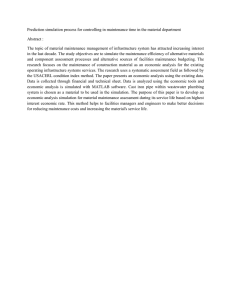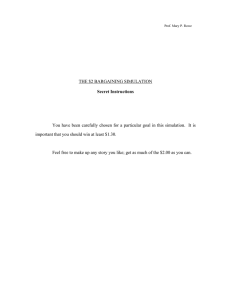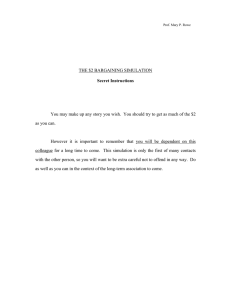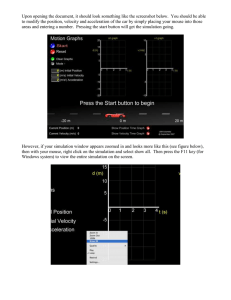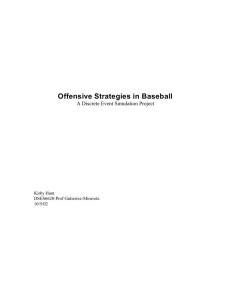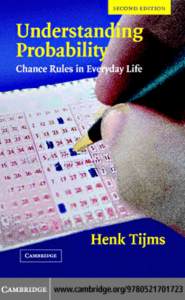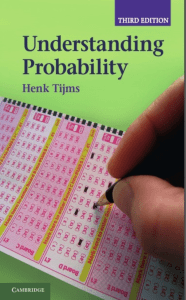S 5.3 – ECTION IMULATIONS
advertisement
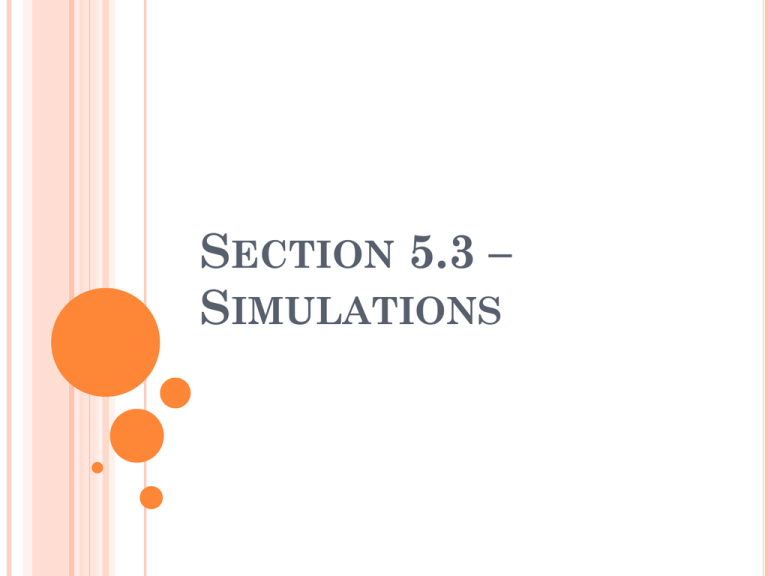
SECTION 5.3 – SIMULATIONS WHAT IS A SIMULATION? A simulation is a mock trial of an experiment without doing the experiment. It uses theoretical probabilities to assign events to outcomes. The repetition of many trial is used to estimate long run outcomes or experimental probabilities. EXAMPLE #3: BOOK PROBLEM, 5.69 1. A certain game of chance is based on randomly selecting 3 numbers from 00 to 99, (allowing repetitions), and adding the numbers. A person wins the game if the resulting sum is a multiple of 5. 1. 2. Describe your scheme for assigning random numbers to outcomes in this game. Run a simulation to estimate the proportion of times a person wins the game in 30 trials. EXAMPLE #1: BOOK PROBLEM, 5.71 Suppose a major league baseball player has a current batting average of .320. Describe an assignment of random numbers to possible results in order to simulate the player’s next 20 at bats. Carry out the simulation for 20 repetitions, and report your results. What is the relative frequency of hits that the player gets. How does your experimental answer compare to the actual batting average? HOMEWORK 5.71
